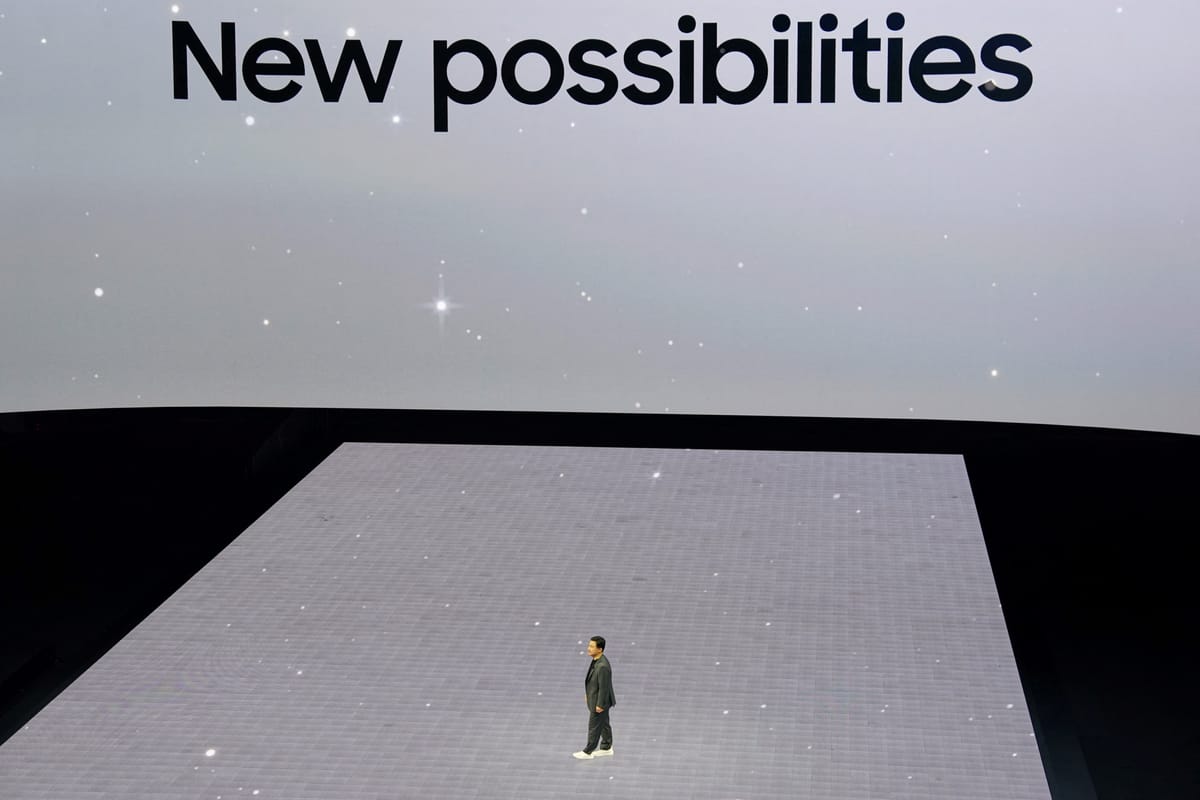Samsung is working on wearable health features, including glucose monitoring without a skin prick
Smartphones and watches are all about health tracking these days.

A few minutes every morning is all you need.
Stay up to date on the world's Headlines and Human Stories. It's fun, it's factual, it's fluff-free.
The backstory: Smartphones and watches are all about health tracking these days, with companies like Samsung, Apple and Google using health features to keep customers interested. The latest focus is on continuous blood pressure tracking and glucose monitoring, which could be real game-changers. Apple has been working on a glucose reader that doesn't need skin pricking, which is good news for people dealing with diabetes. Normally, diabetics have to prick their skin several times a day to check their blood sugar levels, which can be inconvenient and even inaccurate. But making a blood sugar monitor without the skin prick is tough. Apple's been working on it for over a decade, making some progress, but it seems like the final product is still a few years away.
More recently: As for other health gadgetry, Bloomberg reported last November that Apple was upgrading its smartwatch with a new feature to detect high blood pressure. The idea is to give users alerts about potential high blood pressure without needing constant calibration. The report also said Apple was working on a feature to detect sleep apnea. But the tech giant faced a setback recently, having to remove its blood oxygen measuring feature due to a patent infringement battle with Masimo.
Meanwhile, just last week, Samsung teased a new device called the Galaxy Ring. It's packed with sensors and was unveiled at its event in San Jose, California. While details are limited, Samsung is exploring the possibility of integrating it with other devices, including the new Galaxy S24 smartphones.
The development: A Samsung exec said the company is currently working on health features that can check glucose without a skin prick and also continuously monitor blood pressure. In a recent interview with Bloomberg, Hon Pak, Samsung's mobile digital health chief, shared that it’s all part of a broader push to put comprehensive health features in its devices, including the Galaxy Ring. He painted a future where our devices are able to seamlessly monitor our health. Although he didn't provide a specific date, Pak hopes that noninvasive glucose monitoring could become a reality within the next five years.
The Galaxy Ring is expected to launch by the end of 2024. It's designed for those who want health tracking without any complications. The company said that it will initially focus on keeping track of activity and sleep, with additional health features planned for the future. Smart rings are a good alternative for people looking for these wearable features who don’t like to wear a watch.
Key comments:
“The ring represents that community of people who want health tracking that is more comfortable and less obtrusive,” said Samsung's mobile digital health chief Hon Pak. “It’s meeting a need of a specific population of people who want to track and measure, but in a different way.”
"Continued innovation in health tech is critical," said Abbott Laboratories spokesman Scott Stoffel. "It's also complex and must be accurate, easy and affordable. Abbott is the world's leader in continuous glucose monitoring because our FreeStyle Libre products address those needs."
"We're committed to developing new technologies that will help move health care from reactive to proactive," said Andrew Conrad, head of the life sciences team at Google, in a 2015 statement announcing a partnership with glucose monitoring company Dexco. "This collaboration is another step towards expanding monitoring options and making it easier for people with diabetes to proactively manage their health."




Comments ()